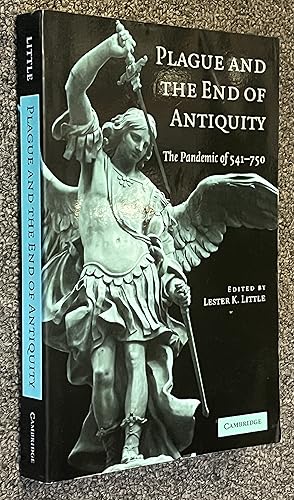Plague and the End of Antiquity; The Pandemic of 541 750
Little, Lester K. (Ed)
About the Book
Description:
Large 8vo 9" - 10" tall; 382 pages; 2008 Cambridge University Press Trade size paperback in glossy pictorial covers. Snugly bound and clean with no marks. Mild shelf and handling evidence to cover edges. VG. Seller Inventory # 52688
About this title:
Synopsis: Plague was a key factor in the waning of Antiquity and the beginning of the Middle Ages. Eight centuries before the Black Death, a pandemic of plague engulfed the lands surrounding the Mediterranean Sea and eventually extended as far east as Persia and as far north as the British Isles. Its persisted sporadically from 541 to 750, the same period that witnessed the distinctive shaping of the Byzantine Empire, a new prominence of the Roman papacy and of monasticism, the beginnings of Islam and the meteoric expansion of the Arabic Empire, the ascent of the Carolingian dynasty in Frankish Gaul and, not coincidentally, the beginnings of a positive work ethic in the Latin West. In this volume, the first on the subject, twelve scholars from a variety of disciplines-history, archaeology, epidemiology, and molecular biology- have produced a comprehensive account of the pandemic's origins, spread, and mortality, as well as its economic, social, political, and religious effects. The historians examine written sources in a range of languages, including Arabic, Syriac, Greek, Latin, and Old Irish. Archaeologists analyze burial pits, abandoned villages, and aborted building projects. The epidemiologists use the written sources to track the disease's means and speed of transmission, the mix of vulnerability and resistance it encountered, and the patterns of reappearence over time. Finally, molecular biologists, newcomers to this kind of investigation, have become pioneers of paleopathology, seeking ways to identity pathogens in human remains from the remote past.
Book Description: Plague was a key factor in the waning of Antiquity and the beginning of the Middle Ages. In this volume, the first on the subject, twelve scholars from a variety of disciplines-history, archaeology, epidemiology, and molecular biology- have produced a comprehensive account of the pandemic's origins, spread, and mortality, as well as its economic, social, political, and religious effects.
Bibliographic Details
Title: Plague and the End of Antiquity; The ...
Publisher: Cambridge University Press, Cambridge & New York
Publication Date: 2008
Binding: Paperback
Condition: Very Good
